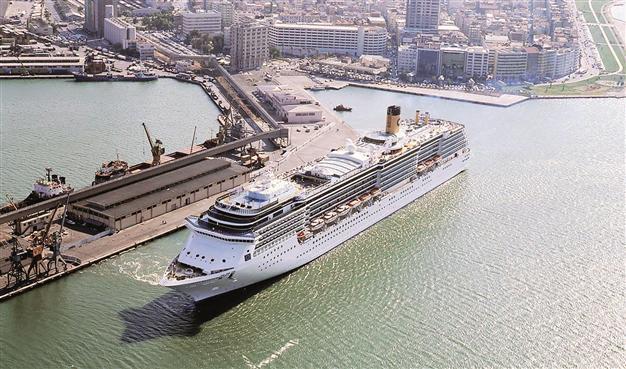EBRD slashes growth estimate for Turkey
ISTANBUL

The European Bank for Reconstruction and Development (EBRD) has suggested that Turkey may grow by 3 percent in 2015, not 3.2 percent as it had previously predicted, due to the impact of Russia's economic crisis on Turkey's tourism income. DHA photo
The European Bank for Reconstruction and Development (EBRD) has cut its 2015 growth estimate for Turkey from 3.2 percent to 3 percent, citing weaknesses in external demand and lower spending by Russian tourists as potential negative factors.The EBRD’s latest economic outlook, published on Jan. 19, said a sharp fall in the price of oil has piled pressure on an already fragile Russia, and is hitting growth in energy exporters and other emerging nations with close links to eastern Europe’s largest economy.
Within this respect, the report estimated that the Turkish economy will grow by 3 percent in 2015, down from the 3.2 percent the institution had previously predicted.
“Turkey is expected to see growth of 3 percent in 2015, supported by the lower oil import bill and potential monetary easing,” the lender said in a statement to share the results of the report.
The EBRD explained the cut by saying “continued weakness in external demand and lower spending by Russian tourists could be negative factors.”
Russia adds pressure
The EBRD report was mainly centered on the challenges that the Russian economy is facing and its spillover effects on linked countries.
The report says EBRD economists expect Russia's GDP to shrink by close to 5 percent in 2015, a major downward revision from September’s forecast of a decrease of 0.2 percent.
On average, countries across the EBRD regions are now expected to see a decrease of 0.3 per cent in 2015, after a forecast of 1.7 percent growth in September.
“Even this forecast is subject to considerable risks,” said Acting EBRD Chief Economist Hans Peter Lankes.
Lankes referred specifically to the impact of any further large falls in the oil price or a further escalation in the Ukraine crisis erupting between the West and Russia, as well as a possible increase in uncertainty in the eurozone.
On the positive side, the oil price decline - and resulting improvements in terms of trade - could help soften the impact on emerging economies of the expected normalization of U.S. monetary policies.
Lower oil prices will also be a positive factor in the southern and eastern Mediterranean region. However, significant benefits from oil prices may be partially offset by lower export demand, investment and remittances from the Gulf Cooperation Council countries.
Turkey, where the EBRD has been active for only five years, has become the largest individual recipient of EBRD financing. Investments rose to 1.4 billion euros in 2014, from 920 million euros in the previous year, the EBRD said in a written statement late on Jan. 14.
The rise in EBRD financing to 8.9 billion euros in 2014 from 8.5 billion euros in 2013 came despite a sharp fall in its investments in Russia following guidance from shareholders in July that they would, for the time being, consider no new projects in the country, the Bank stated last week.
















